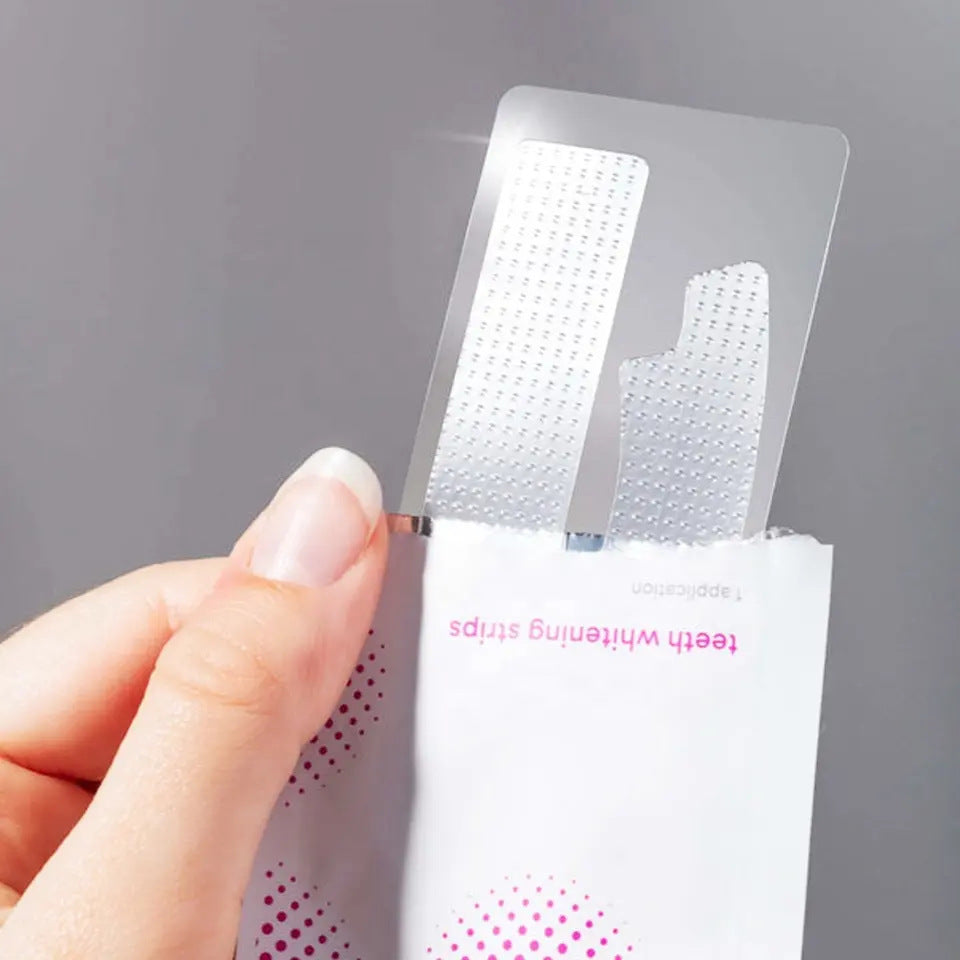Oral hygiene is one of the most important aspects of daily health, and choosing the best manual toothbrush plays a crucial role in keeping your teeth and gums healthy. Whether you have sensitive teeth, suffer from receding gums, or just want to keep your mouth clean – the toothbrush you use can make a world of difference. This guide walks you through everything you need to know about manual toothbrushes – especially soft bristles, the best brushes for sensitive teeth, and the care your gums deserve.
Introduction :
The toothbrush you choose is essential for maintaining a healthy smile and preventing oral problems such as gingivitis and tooth sensitivity. Many people underestimate the importance of choosing the right toothbrush and often opt for a variant that is too hard or not effective for their specific needs. In this comprehensive guide, we discuss the importance of a toothbrush with soft bristles, how to properly care for your gums, and highlight some of the best manual toothbrushes on the market.
Understanding toothbrush bristles:
To start, it is important to understand the different types of bristles on toothbrushes. The bristles are usually available in soft, medium, or hard textures, each offering a different level of cleaning power. Let's look at the options:
- Soft bristles: Soft bristles are the most recommended choice by dental professionals. They are gentle on your gums and enamel, making them ideal for people with sensitive teeth or gum problems. These bristles provide effective cleaning without causing irritation.
- Medium bristles: Although these bristles offer a more thorough cleaning, they can sometimes be too aggressive for the gums, especially for people with sensitive teeth or receding gums.
- Hard bristles: Hard bristles are more abrasive and can damage your gums and enamel if used incorrectly. They are rarely recommended nowadays and should only be used in specific cases as prescribed by your dentist.
Why soft bristles are better for your gums and teeth:
You may wonder why soft bristles are so strongly recommended for everyone, especially for people with sensitive gums. Let's take a closer look:
- Gentle on the gums: Soft bristles provide a mild brushing, which helps prevent irritation, bleeding, or even receding gums. Brushing hard with stiff bristles can lead to gum recession, exposing sensitive tooth roots and increasing the risk of cavities and discomfort.
- Prevents enamel erosion: Tooth enamel is the thin outer layer of your teeth and it is important to preserve it. Using a toothbrush with soft bristles helps reduce the risk of enamel erosion, which can lead to increased sensitivity and a higher chance of tooth decay.
- Better for sensitive teeth: People with sensitive teeth can greatly benefit from soft bristles. These bristles provide effective cleaning without causing pain or discomfort, especially in areas where your teeth are extra sensitive.
Overall, soft bristles offer a gentle yet effective cleaning. Whether you are brushing your teeth or gently massaging your gums, a toothbrush with soft bristles is the best choice for maintaining good oral health in the long term.
Best manual toothbrush for sensitive teeth:
Sensitive teeth require extra care when brushing, as hard brushing can cause pain and discomfort. If you have sensitive teeth, pay attention to the following features when choosing the best manual toothbrush for your needs:
- Soft bristles: As mentioned earlier, soft bristles are essential for sensitive teeth. A toothbrush with soft bristles gently cleans the surface of your teeth without irritating sensitive spots.
- Compact brush head: A compact brush head ensures you can easily reach the back of your mouth and hard-to-reach areas. This also gives you better control while brushing.
- Ergonomic handle: Choose a toothbrush with a comfortable handle that fits well in your hand. This provides a better grip and reduces the risk of applying too much pressure while brushing.
Some of the best manual toothbrushes recommended for sensitive teeth are:
- Oral-B manual toothbrush: Known for its soft bristles and ergonomic design, the Oral-B manual toothbrush is a favorite choice for people with sensitive teeth. It is gentle yet effective, and the comfortable handle makes brushing easier.
- Sensodyne soft toothbrush: Sensodyne is another popular brand specializing in products for sensitive teeth. Their soft toothbrushes are designed to minimize discomfort while still providing thorough cleaning.
What to look for in the best manual toothbrush:
When choosing the best manual toothbrush, there are several important factors to keep in mind:
- Type of bristles: The softness of the bristles is crucial, especially for people with sensitive gums or teeth. Always choose a toothbrush with soft bristles for gentle cleaning.
- Brush head size: The size of the toothbrush head should be small enough to reach the back of your mouth but large enough to cover a significant portion of your teeth at once. A smaller head also allows better maneuverability in the mouth.
- Handle design: Choose a toothbrush with an ergonomic handle that provides a comfortable grip. A non-slip handle prevents you from having to apply too much pressure while brushing.
- Brand reputation: Choose a toothbrush from a trusted brand known for its oral care products, such as Oral-B, Sensodyne, or Colgate.
- Affordable price: Although premium toothbrushes are available, you don't always have to spend a lot of money to get a good toothbrush. There are many affordable options on the market that still offer excellent cleaning power.
Manual toothbrush versus electric toothbrush: which is better?:
When choosing between a manual toothbrush and an electric toothbrush, it often comes down to personal preference and convenience. Here are the pros and cons of both:
- Manual toothbrush:
- Advantages: Manual toothbrushes are affordable, easy to carry, and effective when used correctly. They offer more control, especially for people with sensitive gums or teeth.
- Disadvantages: Requires more effort and time to ensure thorough cleaning compared to electric toothbrushes.
- Electric toothbrush:
- Advantages: Electric toothbrushes provide more consistent brushing power and often come with built-in timers to help you brush for the recommended 2 minutes.
- Disadvantages: They are more expensive and require charging or battery replacement. Additionally, they can be too harsh for people with sensitive gums.
Ultimately, both types of toothbrushes are effective, but manual toothbrushes are a better option for people looking for an affordable, simple solution without worrying about charging or replacing batteries.
Best manual toothbrush UK – Top picks:
In the UK, several brands are known for their excellent manual toothbrushes for various needs. Here are some of the best choices:
- Oral-B Pro-Health Soft Toothbrush: A popular choice in the UK, the Pro-Health model from Oral-B is designed for gentle cleaning thanks to the soft bristles. Perfect for gum care and sensitive teeth.
- Colgate Slim Soft Toothbrush: Known for its slim brush head and soft bristles, the Colgate Slim Soft toothbrush is ideal for gentle cleaning and promoting healthy gums.
- Sensodyne Soft Toothbrush: Specially designed for people with sensitive teeth, the Sensodyne toothbrush is gentle on gums and enamel while still providing effective cleaning.
How to brush your teeth correctly with a manual toothbrush:
Good brushing technique is essential to get the most out of your manual toothbrush. Here's how to do it:
- Place the brush at a 45-degree angle: Hold your toothbrush at a 45-degree angle to your gums to effectively clean the gum line and tooth surface.
- Use gentle circular motions: Use small circular motions to clean the surface of your teeth. Avoid scrubbing back and forth, as this can be harsh on your gums.
- Focus on each section: Spend about 30 seconds on each quadrant of your mouth to clean thoroughly.
- Don't forget your tongue and palate: Gently brush your tongue and palate as well to maintain fresh breath.
Best manual toothbrush for gum care:
Caring for your gums is just as important as cleaning your teeth. Choose a toothbrush that is both soft and effective to promote healthy gums. Soft bristles are essential to prevent damage to the gums, and a toothbrush with a smaller head helps reach all areas in the mouth well. A good toothbrush for gum care also helps reduce plaque and prevent gum problems.
Some of the best manual toothbrushes for gum care are:
- Oral-B Gum Care Soft Toothbrush: Designed for people with gum problems, this toothbrush helps clean the gums without causing irritation.
- Colgate Gum Health Toothbrush: This toothbrush is specially developed for gentle brushing around the gums and offers both gum protection and effective cleaning.
Full Mouth Toothbrush: Is it worth it?
A full mouth toothbrush is designed to clean your entire mouth more efficiently by covering a larger surface area at once. While these brushes may offer benefits for some people, they are generally not necessary for most. The key to healthy teeth and gums is brushing with the right technique and using a toothbrush that suits your needs.
Conclusion:
Choosing the right manual toothbrush can make a big difference for your oral health. Whether you have sensitive teeth, easily receding gums, or just want to keep your smile bright, a manual toothbrush with soft bristles is an indispensable tool in your daily routine. By paying attention to factors such as the softness of the bristles, the comfort of the handle, and the brand's reputation, you can find the best toothbrush that fits your needs.
Frequently Asked Questions (FAQs)
1. How often should I replace my manual toothbrush?
It is recommended to replace your toothbrush every 3 to 4 months, or sooner if the bristles are worn or splayed.
2. Can a manual toothbrush clean as well as an electric toothbrush?
Yes, as long as you use the correct brushing technique, a manual toothbrush can be just as effective as an electric toothbrush.
3. Is a toothbrush with soft bristles better for sensitive teeth?
Yes, soft bristles are gentle on sensitive teeth and gums and are recommended for people who experience discomfort.
4. Can I use a manual toothbrush with receding gums?
Yes, a manual toothbrush with soft bristles can help prevent further gum recession, provided you use the correct brushing technique.
5. Are there manual toothbrushes specially designed for people with braces?
Yes, there are toothbrushes with special features, such as angled bristles or smaller heads, specifically designed to clean effectively around braces.








Leave a comment
This site is protected by hCaptcha and the hCaptcha Privacy Policy and Terms of Service apply.